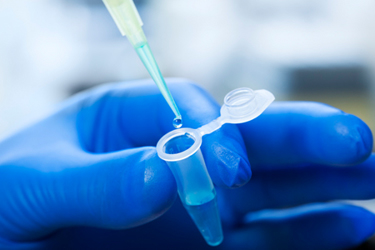Expansion Of MDCK Cells On SoloHill® Microcarriers Via Growth In Stirred Vessels

Common production platforms employed for manufacture of vaccines, biologics, and cell therapeutics include roller bottles, cell cubes | factories or suspension cultures. Although well-established, traditional adherent formats occupy a large footprint, are labor intensive, and are susceptible to frequent contamination problems due to numerous open handling steps. With suspension cultures, problems can arise because cells grown in suspension display characteristics that differ from their adherent phenotypes. Furthermore, downstream development may become more challenging for processes requiring cell retention. Closed impeller bioreactor systems utilizing microcarriers provide a logical alternative to these systems.
The advantages of bioreactors include the ability to precisely control and optimize cell growth conditions, ease of use, and avoidance of contamination due to the “closed” nature of the system. Microcarriers offer a large surface area for growth of anchorage-dependent cell types, thereby facilitating the use of bioreactors for propagation of attachment-dependent cells. Because specific cell types have unique requirements for attachment and growth, the optimal microcarrier should be selected empirically. The most cost-effective pathway to this end is to perform small-scale studies with multiple microcarrier types to identify the best microcarrier for the application. To streamline manufacturing processes, consideration should be given to the physical characteristics of the microcarriers and the bioreactor platform to be used for final production. For example, durable and rigid microcarriers facilitate efficient harvest of cells from bioreactors. Additionally, some microcarrier types require minimal preparation steps prior to use. Consideration should also be given to media composition, bioreactor configuration and proposed harvest procedures if applicable.
MDCK cells are a kidney epithelial cell line derived from a healthy adult female dog. These cells are currently employed for production of Influenza A and B viruses used in trivalent vaccines. Preliminary studies performed using SoloHill® Microcarriers indicated that MDCK cells exhibit excellent growth characteristics on Collagen (SoloHill® Microcarriers C102-1521), FACTIII (Solohill® Microcarriers F-221), Plastic Plus (SoloHill® Microcarriers PP102-1521) and Hillex® II ( SoloHill® Microcarriers H-170) microcarriers. In this application note, we characterize MDCK cell (ATCC* CCL34*) growth on four SoloHill® Microcarriers in stirred vessels.
Get unlimited access to:
Enter your credentials below to log in. Not yet a member of Drug Discovery Online? Subscribe today.
